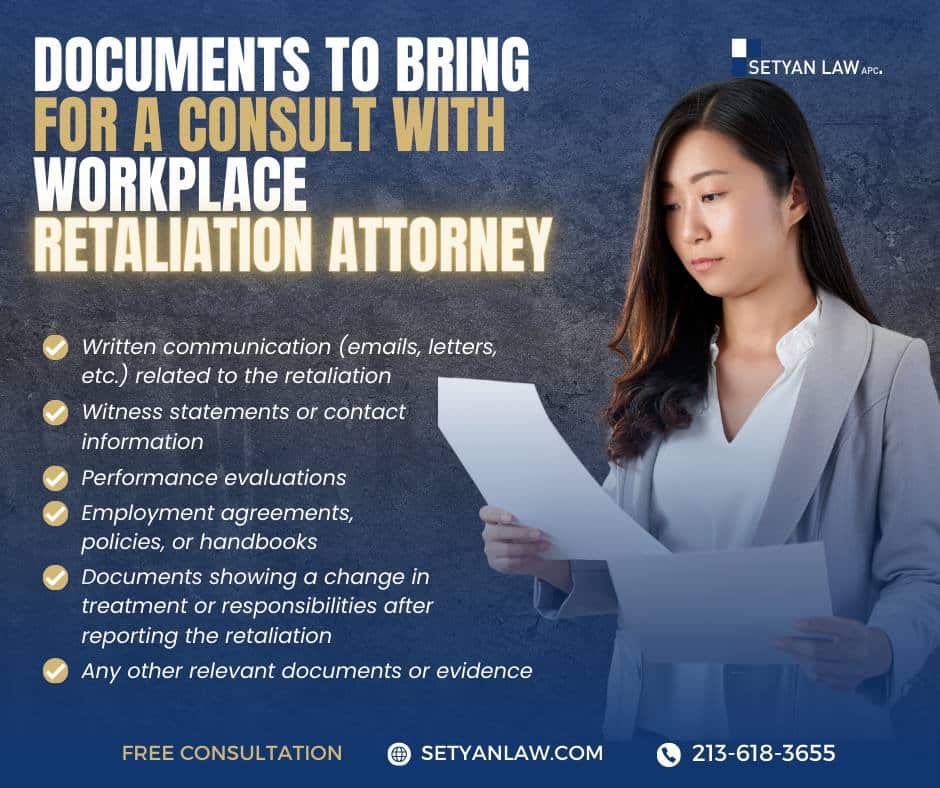Updated June 13, 2025
California Labor Code 2802: Hidden Expenses Your Company Must Reimburse
Are you paying for work-related expenses out of your own pocket? California Labor Code 2802 might entitle you to significant reimbursement from your employer.
Many California employees unknowingly subsidize their companies by covering work expenses themselves – from using personal cell phones for business calls to paying for home internet while working remotely. This practice not only impacts your personal finances but actually violates state law.
Under California's employee-friendly labor regulations, employers must repay workers for all "necessary expenditures" incurred while performing job duties. Surprisingly, this protection extends far beyond obvious expenses like business travel, covering numerous everyday costs many workers simply accept as personal obligations.
This article explains what California Labor Code 2802 legally requires, identifies seven commonly overlooked expenses your employer must reimburse, and outlines the steps to take if your company fails to comply with these important reimbursement obligations. Whether you're working in an office or remotely, understanding these protections can potentially save you thousands of dollars annually.
What California Labor Code Section 2802 Legally Requires
California Labor Code Section 2802 establishes critical financial protections for employees throughout the state. This powerful legislation creates mandatory reimbursement obligations that many employers either misunderstand or deliberately ignore.
Definition of 'Necessary Expenditures' Under Section 2802
The statute clearly states that "an employer shall indemnify his or her employee for all necessary expenditures or losses incurred by the employee in direct consequence of the discharge of his or her duties". These aren't optional guidelines—they're legal requirements.
What exactly constitutes "necessary expenditures"? According to subdivision (c) of Section 2802, this includes "all reasonable costs". This broad definition encompasses any reasonable expense that results directly from performing your job or following employer directions.
Furthermore, these protections extend to unusual situations. The code specifically mentions that employers must reimburse employees even when following potentially unlawful directions, "unless the employee, at the time of obeying the directions, believed them to be unlawful".
Notably, employers cannot contract around these obligations. Related Labor Code Section 2804 explicitly prohibits any agreement that waives an employee's rights to full reimbursement, declaring such agreements "null and void".
Applicability to Private vs Public Employers
An important distinction exists regarding who must follow these reimbursement rules. Labor Code provisions generally apply only to private employers unless specifically extended to public entities.
The California courts have clarified this limitation. For instance, Section 2802 does not automatically apply to counties, cities, or state agencies. In a significant ruling, courts determined the California State University was exempt from Section 2802 because the Education Code specifically grants the University authority to set its own rules for employee equipment allowances .
Nevertheless, public agencies should carefully review their governing legislation. If it doesn't explicitly address employee expense reimbursements, they may still face potential liability.
Legal Precedents: Gattuso v. Harte-Hanks and Others
The landmark Gattuso v. Harte-Hanks case significantly shaped how California Labor Code 2802 is interpreted and applied. In this pivotal ruling, the California Supreme Court established that employers must reimburse employees for automobile expenses when using personal vehicles for work purposes .
Additionally, the court addressed acceptable reimbursement methods. The justices determined that Section 2802 doesn't mandate a specific reimbursement method, provided the chosen approach fully covers all actual expenses necessarily incurred.
Three primary reimbursement approaches emerged as legally valid:
- Actual expense reimbursement – Though comprehensive, this method was deemed cumbersome and often impractical
- IRS mileage rate reimbursement – Recognized as "presumptively reasonable" by the Division of Labor Standards Enforcement
- Lump-sum reimbursement – Approved as compliant with Section 2802 provided it results in full reimbursement
Importantly, the court also ruled that employers can combine expense reimbursement with regular compensation (like increased base salary or commission rates). However, they must "provide some method or formula to identify the amount of the combined employee compensation payment that is intended to provide expense reimbursement".
All awards for reimbursement under Section 2802 carry interest from the date the expense was incurred . Moreover, the Labor Commissioner can issue citations against employers who violate reimbursement obligations.
7 Hidden Expenses Employers Must Reimburse
Beyond the obvious business expenses, California employers must reimburse workers for numerous everyday costs that often go unclaimed. Here are seven frequently overlooked expenses that your company is legally obligated to cover under California Labor Code 2802.
1. Personal Cell Phone Usage for Work
Employers must reimburse a reasonable percentage of cell phone bills when employees use personal phones for work purposes. Importantly, this requirement applies even if employees have unlimited plans or incur no additional out-of-pocket costs. The landmark Cochran v. Schwan's Home Service case established this principle, ensuring employees receive compensation for business-related cell phone use regardless of their plan type. Most company reimbursements for mobile expenses typically range between $30-$50 monthly, with the average being $40.20 per employee .
2. Home Internet for Remote Work
For remote workers, employers must cover a reasonable percentage of home internet costs when needed to perform job duties. This obligation exists regardless of who mandated the remote work arrangement—whether by employer policy or government order. The July 2023 Thai v. IBM ruling confirmed that remote workers must be reimbursed for necessary expenses incurred to perform work duties, including internet access . Essentially, if your job requires internet connectivity, your employer should contribute to this expense.
3. Mileage and Vehicle Depreciation
When using personal vehicles for business purposes (excluding regular commuting), employees are entitled to mileage reimbursement. For 2025, the standard IRS mileage reimbursement rate is 70 cents per mile . This covers not just fuel costs but also vehicle depreciation, maintenance, insurance, and registration fees. Employers may use alternative calculation methods, including lump-sum payments or actual expense tracking, provided they fully cover all necessary costs.
4. Office Supplies and Equipment
Office supplies purchased for work purposes—including desks, ergonomic chairs, paper, ink, pens, and other materials—qualify for reimbursement. During the pandemic, many employers were required to cover costs of setting up home offices. Correspondingly, items like printers, laptops, and ergonomic equipment needed to perform job duties properly fall under the reimbursement requirement.
5. Business Travel: Lodging, Meals, and Transit
Business travel expenses extend far beyond basic transportation. Reimbursable costs include lodging, meals, parking fees, tolls, taxi fares, public transit, currency conversion fees for international travel, and even reasonable tips . At this point, many employers establish specific policies limiting costs, such as requiring economy-class flights or setting maximum meal allowances.
6. Postage and Shipping for Work Documents
Mailing or shipping work-related documents and materials at your own expense? Indeed, these costs are reimbursable under Section 2802 . Certainly, employers cannot pass the cost of business operations—including necessary postage and courier services—onto their employees.
7. Software Subscriptions and Licensing Fees
Coupled with hardware requirements, necessary software costs are reimbursable. If your job requires specific applications or online subscriptions, your employer must either provide them directly or reimburse you for their cost . This includes paid software plans, specialized applications, or online services that are essential to performing your job functions.
How to Determine If an Expense Qualifies for Reimbursement
Determining whether an expense qualifies for reimbursement under California Labor Code 2802 requires analyzing several specific criteria. The law creates a framework for evaluating business expenses, yet many employees remain uncertain about which costs their employers must cover.
Direct Consequence of Job Duties
For an expense to qualify for reimbursement, it must be "necessarily incurred" as a "direct consequence" of performing job duties. California Labor Code Section 2802 specifically states employers must "indemnify his or her employee for all necessary expenditures or losses incurred by the employee in direct consequence of the discharge of his or her duties". This standard focuses on the connection between the expense and work responsibilities, rather than who initiated the arrangement.
The California Court of Appeal reinforced this principle in the July 2023 Thai v. IBM decision, ruling that reimbursement eligibility depends on whether expenses were a direct consequence of job duties, not whether the employer directly caused those expenses . Hence, even if an employer didn't explicitly order a specific purchase, the expense could still qualify if it was necessary to complete assigned work.
To evaluate this connection, consider:
- Is the expense required to fulfill specific job responsibilities?
- Would the job duties be impossible or significantly more difficult without this expense?
- Does the expense primarily benefit the employer rather than the employee?
Employer Direction vs Voluntary Action
A crucial distinction exists between employer-mandated expenses and those resulting from an employee's voluntary choices. Labor Code 2802 covers expenses incurred through "obedience to the directions of the employer" , subsequently creating a clearer reimbursement obligation for employer-directed costs.
Nonetheless, voluntary arrangements present more nuanced situations. If an employer has reopened offices and employees can return but choose to work remotely, there exists "a very good argument that the employee's remote work expenses are not 'necessary' and need not be reimbursed" . Forthwith, employers should clarify policies about which expenses will be covered when remote work is optional rather than required.
The Illinois Department of Labor (whose reimbursement law parallels California's) identifies relevant factors including:
- Whether the employee expects reimbursement
- Whether the expense is necessary to perform job duties
- Whether the employer receives value it would otherwise need to pay for
- How long the employer benefits from the expense
Shared Use Items: Calculating Reasonable Percentages
Many expenses—particularly for remote workers—involve items used for both work and personal purposes. In these cases, employers must reimburse a "reasonable percentage" of the cost.
For shared items like internet service or cell phones, employers should determine fair allocation based on work-related usage. As one employer guidance notes, "no employer will be able to determine the precise portion of an employee's expense that is work-related" . Consequently, many companies establish flat monthly amounts they believe reasonably cover work-related portions.
California courts have established that for cell phones, reimbursement is required even when employees have unlimited plans and incur no additional costs from work usage. The same principle applies to home internet for remote workers.
Employers can alternatively limit expense obligations by providing company-owned equipment like laptops, phones, and hotspots , thereby eliminating the need to calculate usage percentages for personal devices.
Throughout this process, the employer bears responsibility for ensuring expenses are both "necessary" and "reasonable" while maintaining appropriate documentation for tax purposes.
What Happens If Employers Fail to Reimburse
Employers who disregard California Labor Code 2802 reimbursement obligations face serious legal consequences. Workers have multiple pathways to recover these unpaid expenses.
Filing a Claim with the California Labor Commissioner
When employers refuse to reimburse necessary business expenses, employees can file a wage claim with the California Labor Commissioner's Office, formally known as the Division of Labor Standards Enforcement (DLSE). This provides a low-cost forum to address wage violations. After submitting an "Initial Report or Claim" form, the Labor Commissioner sends a "Notice of Claim and Conference" to both parties. This conference aims to resolve the issue without a full hearing.
If no settlement occurs, the case proceeds to a formal hearing. Throughout this process, the employee must demonstrate:
- A wage agreement requiring specific payment
- Work completed according to the agreement
- Incorrect payment under the agreement
- Employer liability for penalties
Recoverable Damages: Interest, Fees, and Penalties
Employees who prevail can recover multiple forms of compensation beyond the original expenses. California law entitles workers to:
- The full amount of unreimbursed expenses
- Interest accrued from the date each expense was incurred
- Attorney fees incurred while enforcing reimbursement rights
- Court costs associated with litigation
If the employer still refuses to pay after receiving an Order, Decision, or Award (ODA), the Labor Commissioner can enter the ODA as a court judgment against the employer.
Class Action Lawsuits for Systemic Violations
In cases where numerous employees suffer similar violations, class action lawsuits offer a powerful remedy. These lawsuits allow legal representation for dozens, hundreds, or thousands of affected workers simultaneously.
Class actions are particularly effective when employers systematically fail to reimburse cell phone usage, mileage, or other common expenses. Besides collective strength, class actions provide efficiency—recovering unpaid expenses for many employees through a single lawsuit.
Employees serving as representative plaintiffs typically receive additional compensation for their time and effort, plus their share of settlement proceeds.
Can Employers Use Salary Increases Instead of Reimbursements?
Many California employers wonder if they can simply raise salaries instead of tracking individual expenses. The answer is yes—under specific conditions.
Wage-Expense Reimbursement Explained
In the landmark Gattuso v. Harte-Hanks decision, the California Court of Appeal ruled that employers can satisfy their Labor Code 2802 obligations through enhanced compensation rather than separate reimbursements. This "wage-expense reimbursement" approach allows companies to increase an employee's base salary, commission rates, or both, as an alternative to direct expense repayment.
Although convenient, this method comes with strict requirements. Primarily, employers must use a clear apportionment method that distinguishes between compensation for labor and reimbursement for business expenses. Additionally, the salary increase must be sufficient to cover all reimbursable expenses the employee incurs. Simply raising pay without specifying what portion addresses reimbursement obligations may lead to enforcement difficulties.
IRS and Tax Implications of Flat Stipends
The tax treatment of reimbursements varies significantly based on how they're structured. Per diem payments and direct reimbursements typically aren't considered taxable wages if properly documented and within federal guidelines. In contrast, flat stipends without expense verification or salary increases are generally treated as taxable income to employees.
For employers offering enhanced compensation, the Gattuso Court noted that potential adverse tax consequences don't affect an employer's choice of reimbursement method. Nevertheless, these tax implications must be considered when determining whether the payment provides sufficient reimbursement.
Recordkeeping Requirements for Compliance
Thorough documentation is crucial for wage-expense reimbursement compliance. Employers should:
- Clearly identify the portion of compensation intended for expense reimbursement
- Maintain records demonstrating the enhanced compensation fully covers necessary expenses
- Consider providing wage statements that separately identify reimbursement amounts
Despite not being explicitly required, separate identification on wage statements helps prove compliance with Section 2802 obligations.
Ultimately, while wage-expense reimbursement offers administrative simplicity, many employers find direct reimbursement clearer and more defensible. Each approach requires balancing employee satisfaction, administrative burden, and legal compliance under California's stringent labor laws.
Conclusion
California Labor Code 2802 stands as one of the strongest employee protection measures nationwide, safeguarding workers from subsidizing their employers through personal funds. Throughout this article, we've examined how this statute creates mandatory reimbursement obligations that extend far beyond obvious business expenses.
First and foremost, employers must repay all "necessary expenditures" directly resulting from job duties, regardless of whether these costs were explicitly authorized. This protection covers countless everyday expenses many workers mistakenly accept as personal obligations – from cell phone bills and home internet to vehicle depreciation and office supplies.
Legal precedents like Gattuso v. Harte-Hanks and Thai v. IBM have further strengthened these protections, establishing that employers cannot sidestep reimbursement responsibilities simply because employees incur no additional costs or choose flexible work arrangements. Accordingly, even workers with unlimited phone plans deserve compensation for business-related usage.
Employees facing reimbursement denials have multiple recovery paths. Filing claims with the California Labor Commissioner offers a low-cost option, while class action lawsuits address systemic violations affecting numerous workers. Either approach can recover not just unpaid expenses but also interest, attorney fees, and potential penalties.
Companies seeking administrative simplicity might consider wage-expense reimbursement – increasing salaries instead of tracking individual expenses. Nevertheless, this approach requires clear documentation showing which portion addresses reimbursement obligations and must fully cover all necessary business costs.
Understanding these reimbursement rights empowers California workers to stop subsidizing their employers unknowingly. Before paying work-related expenses from personal funds, check whether these costs qualify for reimbursement under Labor Code 2802. After all, those seemingly small expenses – $40 monthly for cell phone usage or 70 cents per business mile – can accumulate into thousands of dollars annually that rightfully belong in your pocket, not your employer's.
If you need employment litigation, call Setyan Law at (213)-618-3655. Free consultation.






